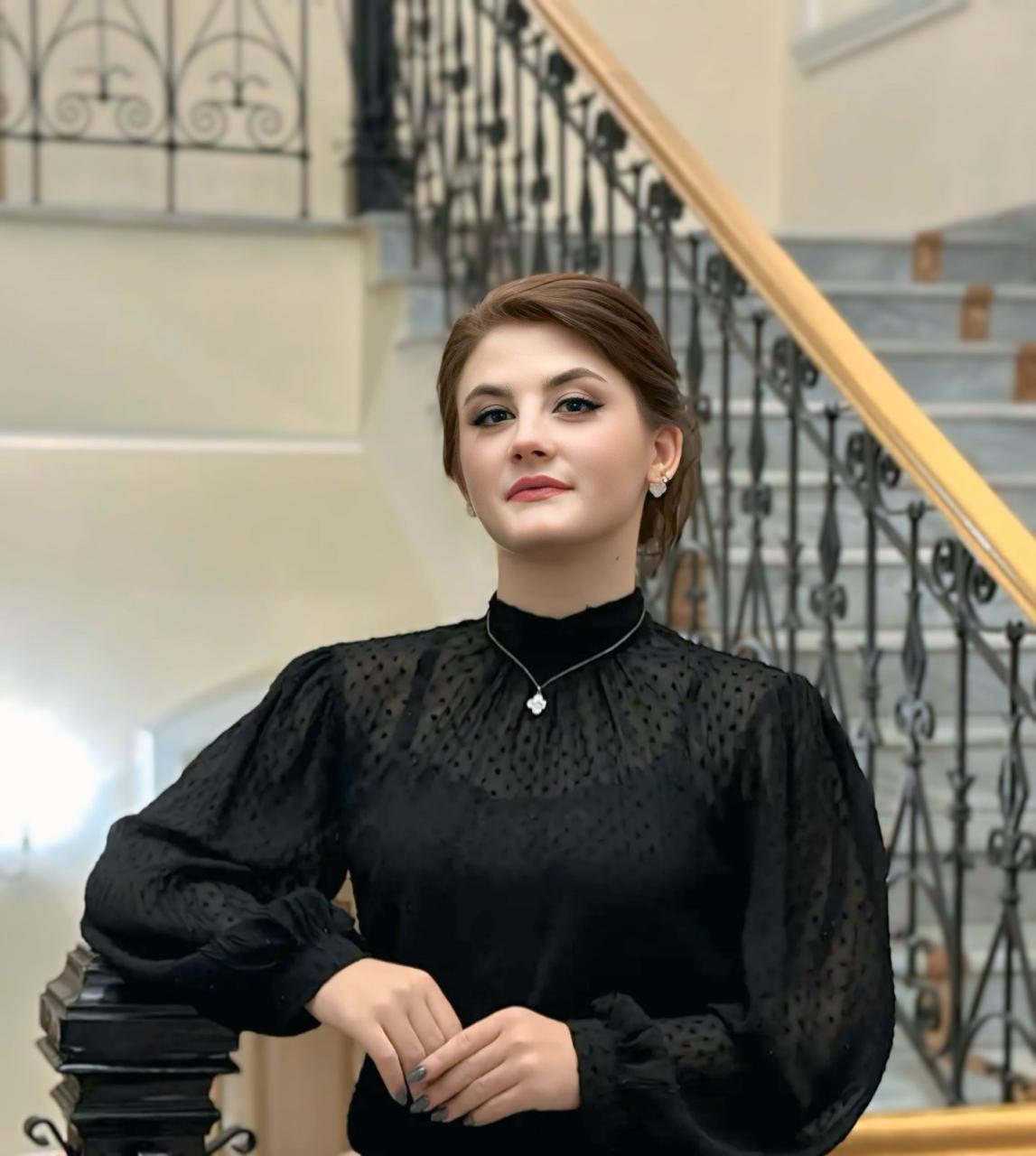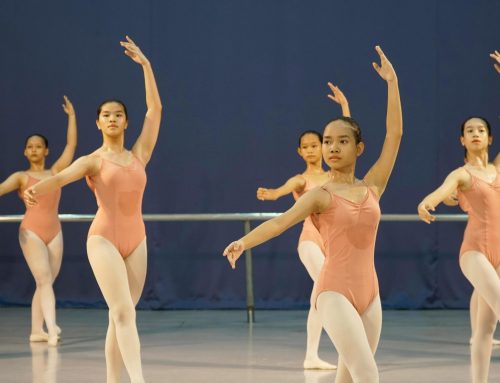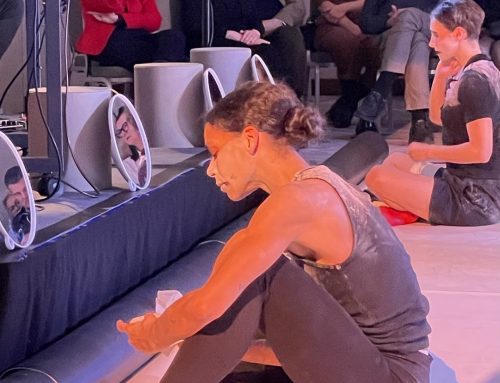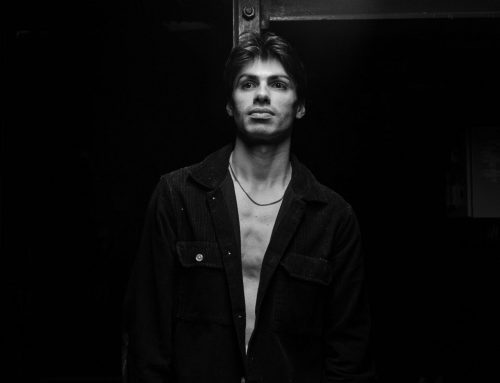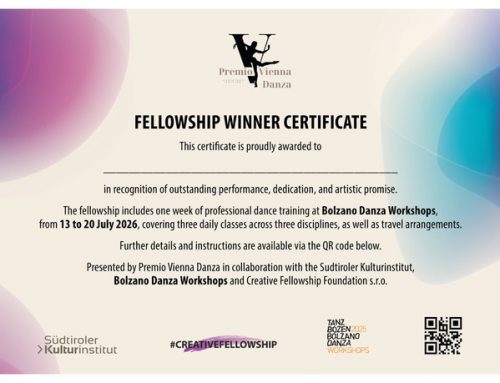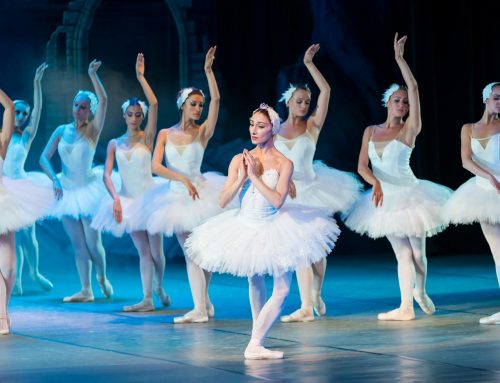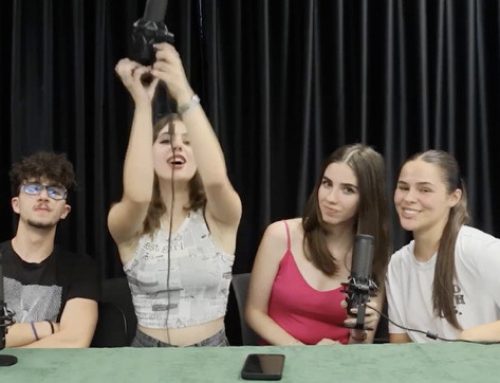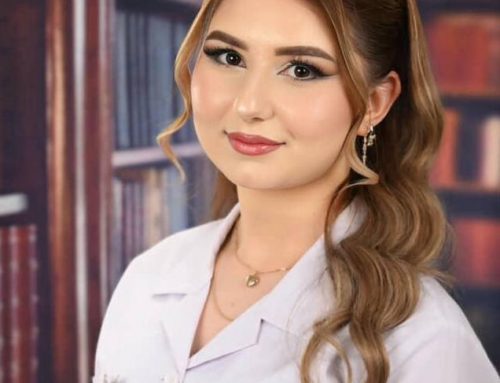Opera singer and Creative Fellowship Fellow Vladislava Daniliuk is charting new territory—not just with her voice, but with a baton in hand. As she continues her formal training in opera, Vladislava is also exploring the world of conducting through the Girls Who Conduct program, seeking to broaden her artistic and professional horizons.
We met with Vlada to talk about the importance of representation, the challenges of stepping onto the podium, and how expanding her skill set is creating new opportunities in a field still shaped by tradition and gender imbalance.
Vladislava Danyliuk is a two-time graduate of the Creative Fellowship who is currently completing her Master’s studies at the A.V. Nezhdanova Odesa National Music Academy. Although she is not currently enrolled in any of the Creative Fellowship’s active projects, she continues to receive mentorship and career development support through the organization.
In 2024, Creative Fellowship’s network of consulting teaching artists brought to our attention an open call for the Girls Who Conduct mentorship program—an initiative aimed at empowering young women and non-binary musicians aged 16–22, particularly those with little to no conducting experience. The program typically selects participants through an application process, which may include submission of resumes, conducting videos, and personal statements.
Supporting Vladislava throughout the application and scholarship process was a natural extension of our ongoing commitment to nurturing emerging talent. Through this opportunity, she gained access to a transformative program designed to develop her conducting skills under the guidance of experienced mentors.
- How did you become a member and scholarship holder of the Girls Who Conduct program?
I learned about the program through the Creative Fellowship. I was drawn to its mission of supporting women in the field of conducting. I applied through the open call, prepared all the required materials, and was later accepted to participate.
- Can you walk us through the structure of the Girls Who Conduct program? What kinds of activities, workshops, or mentorship opportunities does it include? How often? Who are the teachers?
The program lasts for 9 months and includes one online session per month, discussions with mentors, and lectures by women conductors. Each session has a specific theme — from technical score analysis to practical advice on rehearsals, teaching, and more. The program is led by Kaitlin and Tanya (Kaitlin Bove and Tanya Chanphanitpornkit, mentors), who create a very supportive environment.
- How would you describe the teaching style or educational philosophy behind the program? Was it more hands-on, discussion-based, or a mix?
It’s a combination of a practical approach with deep analytical exploration. There’s a strong focus on dialogue and experience sharing, but the program also offers a clear learning structure — especially on technical topics like score analysis, tempo, and conducting gestures.
- What aspects of the program did you find most valuable—technical training, leadership development, networking, or something else?
For me, the most valuable parts were improving my score study skills and gaining a deeper understanding of the conductor’s profession — from the inside, with all its nuances.
- Were there any particular modules, lessons, or guest sessions that stood out to you as especially impactful?
I was deeply impressed by the session with Ingrid Martin (conductor, teacher from Australia). She explained things with clarity and depth, particularly what really engages an audience.
- What kind of support does the program provide after completion—alumni networks, continued mentorship, or professional development opportunities? Do you get to conduct a real orchestra?
After completing the program, we receive a résumé we can use to apply to various organizations, and we’ll learn where and how to apply it to further our careers. Unfortunately, I am not ready to conduct an orchestra, as I lack the skills for this, this course is more productive for people who already know how to conduct.
Does Girls Who Conduct create a sense of community among participants? Are there opportunities for collaboration or peer support?
Absolutely. All participants have the chance to share experiences, support each other, and discuss the challenges they face. It’s a space where you can be honest about your level, ask questions, and receive genuine support.
- Does the program prepare you for real-world conducting experiences—such as auditions, rehearsals, or working with professional ensembles?
Yes. A significant part of the program is dedicated to real-life scenarios — how to prepare for an audition, how to work effectively with an orchestra, and how to communicate with musicians. The training is highly practical and grounded in the realities of the profession.
- Does the program include any components focused on broader industry issues, such as advocacy, institutional change, or building inclusive spaces in classical music?
Yes, that’s an important component of the program. We discussed topics such as representation, access, changes in music education systems, and institutional culture. Participants are encouraged to be active not only as conductors but also as changemakers in the professional environment.
- What advice would you give to younger girls who are curious about conducting but might not see themselves represented in the field?
Start small and don’t be afraid to ask for help. Representation matters — and although we still don’t see many women on the podium, that is changing. Look for communities like Girls Who Conduct, where you’ll find support, knowledge, and inspiration. You’re not alone.

